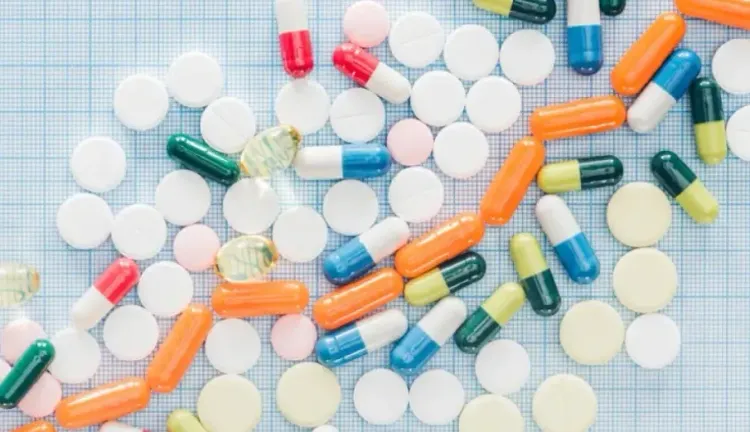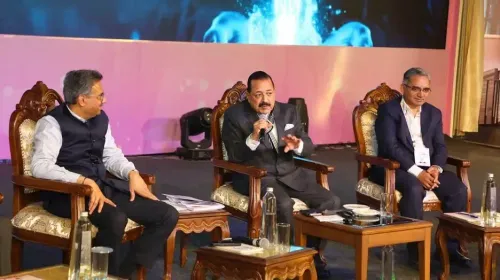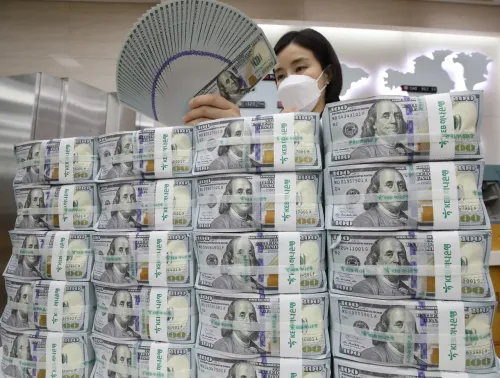Have 48 projects been approved to prevent disruptions in the supply of vital active pharmaceutical ingredients?

Synopsis
Key Takeaways
- 48 projects approved to enhance domestic manufacturing.
- Investment commitment of Rs 3,938.5 crore.
- Reported cumulative sales of Rs 1,556 crore.
- Avoided imports worth Rs 1,144 crore.
- Encouraged participation through webinars and social media outreach.
New Delhi, July 22 (NationPress) The government announced on Tuesday that it has given the green light to 48 projects under the production-linked incentive (PLI) scheme aimed at bolstering domestic manufacturing of essential Key Starting Materials (KSMs), Drug Intermediates (DIs), and Active Pharmaceutical Ingredients (APIs) in India.
The initiative seeks to mitigate disruptions in the supply of crucial active pharmaceutical ingredients (APIs) used for producing essential medicines that lack alternatives, as emphasized by Minister of State for Chemicals and Fertilisers, Anupriya Patel, during a written response in the Rajya Sabha.
The products approved under this scheme were primarily sourced from imports before the PLI scheme was initiated.
By December 2024, an investment of Rs 4,254 crore has already been made against a commitment of Rs 3,938.5 crore over the span of six years.
This scheme has led to cumulative sales of Rs 1,556 crore since its inception until December 2024, which includes exports worth Rs 412 crore, thereby preventing imports amounting to Rs 1,144 crore and building domestic manufacturing capacity for 25 identified KSMs/DIs/APIs.
To foster awareness and encourage engagement in the scheme, various measures were implemented at the time of its launch, as the minister noted.
These initiatives include conducting webinars and stakeholder consultations with industry associations and prospective applicants; issuing press releases, comprehensive guidelines, and FAQs; and regular outreach via social media campaigns.
Additionally, dedicated helpdesk support and query resolution mechanisms were made available through the scheme's portal, along with the publication of press releases on government websites.










